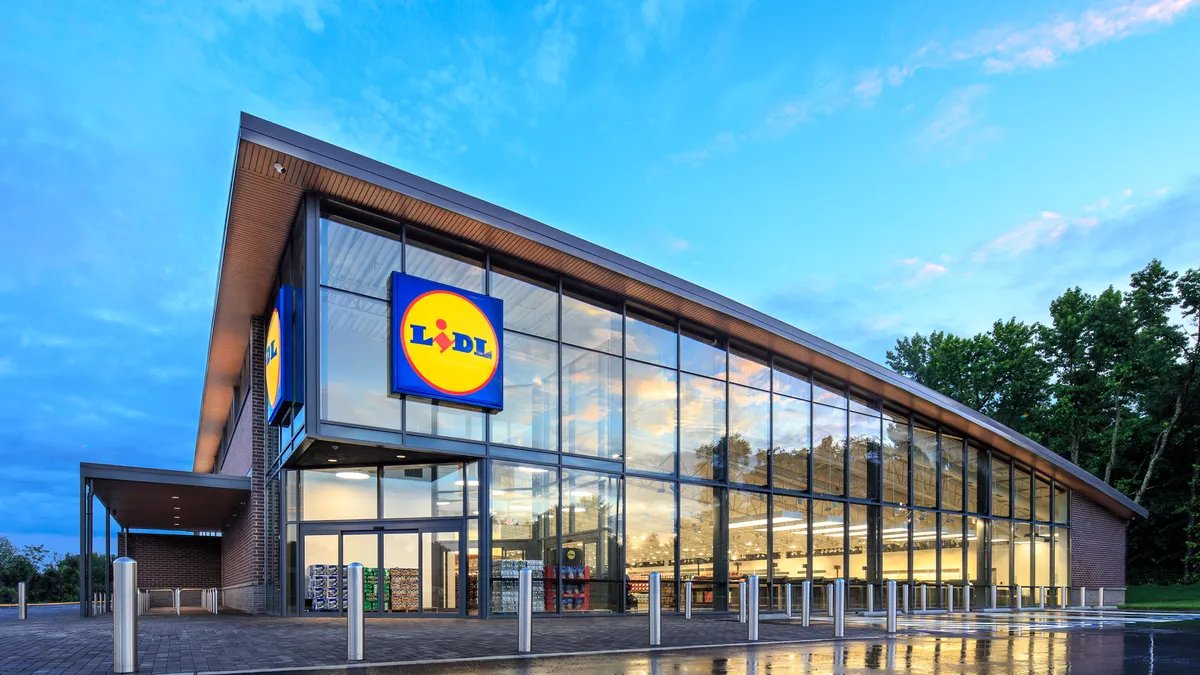Dive Brief:
- In court papers filed in Virginia late last week, Lidl stated that Kroger’s trademark infringement lawsuit involving its gourmet private label line offers no evidence to support its claims, according to Business Insider. Further, Lidl claims the suit amounts to an attempt by Kroger to smear the discounter’s reputation as it begins opening stores in the U.S.
- "Kroger is using this lawsuit to try to: disrupt the on-going launch of a new, emerging competitor that offers consumers high-quality products at far lower prices; distract from the positive reviews garnered by Lidl’s launch by painting Lidl as a copycat — when in fact Lidl is a decidedly different and (better) grocery experience; and drive up Lidl’s costs by having to defend against Kroger’s spurious claims," Lidl states in the court filing.
- Lidl also referenced Kroger’s recent struggles, noting that the same day the discounter began opening stores, the grocer announced its margins were down and it would slash its earnings forecast for the year.
Dive Insight:
Whether or not Kroger filed its lawsuit to disrupt Lidl and its much-anticipated store openings, the move has resulted in a retailer dispute that lays bare the tensions and competitive pressures at stake in the grocery industry.
To recap: Kroger’s suit, which the grocer filed last month, claims Lidl’s Preferred Selection private brand is too similar in name and appearance to its Private Selection brand. These similarities, Kroger claims, will lead shoppers to believe the two companies are in business together and will cause “irreparable harm and other damages” to Kroger.
The lawsuit focuses on an all-important part of both companies’ business. Kroger’s private label brands total more than $20 billion in yearly sales and comprise 28% of all products sold, according to the company. Lidl’s selection, meanwhile, is more than 90% private label, and includes an assortment carefully curated to meet the chain’s standards for quality and affordability.
Lidl certainly poses a threat to Kroger. With its price and quality focus, the discounter, which began opening its U.S. stores on June 15, is poised to draw customers at the high and low ends of the market — and all points in between. However, most analysts agree conventional grocers without strong customer loyalty and points of differentiation are most vulnerable to losing customers to the chain. Kroger, despite its recent struggles, is a stronger operator than most, and has cut prices and increased efficiency measures in recent months in order to stay competitive.
Just as Kroger’s lawsuit came as a shot across the bow, so Lidl has hit back hard at the grocer. Expect this battle to continue in the courtroom and in grocery aisles up and down the East Coast.









